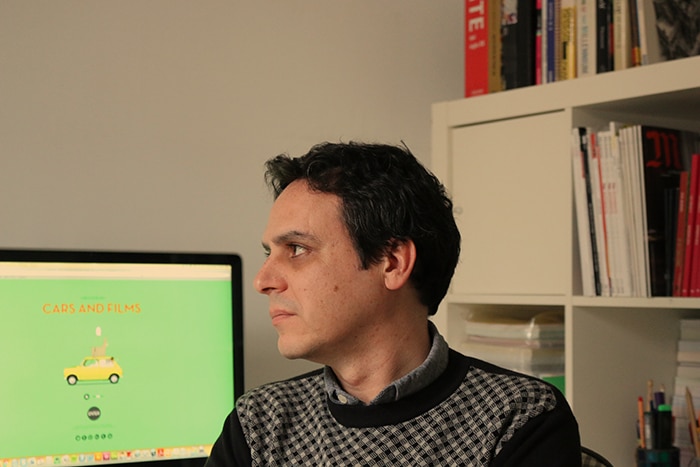
Is Travel – the Ultimate Way to Experience Freedom – still possible?
by Elena Castelló
Traveller or tourist?
This debate has all but disappeared. The 21st Century that we live in barely allows for the travel experience. The proliferation of transport to even the most isolated corners of the planet, along with “low cost” prices, has rendered the concept of “travel” practically impossible. Nowadays, almost all that remain are “tourists”. However, what essentially characterises travel – an attitude of open-mindedness and boundless curiosity – is still possible: the idea that a destination is not just a place, but rather a new way of seeing things. You can immerse yourself in another culture without needing to understand it entirely, because that otherness is the very soul of travel. With the help of three distinguished travellers and a 21st Century writer, we will explore travel around the world – one of the most delightful and enriching experiences – as being synonymous with contemporary luxury: the luxury of experience.
“Whereas the tourist generally hurries back home at the end of a few weeks or months, the traveller belonging no more to one place than to the next, moves slowly over periods of years, from one part of the earth to another”
North American Paul Bowles (New York, 1910-Tangier, 1999) writes in his mythical novel “The Sheltering Sky”. Bowles wandered for many years through France, India, Sri Lanka, Thailand, Turkey, Kenya, Mexico and Costa Rica, before settling in Tangier, Northern Africa, where he lived for fifty years and finally passed away almost twenty years ago at the age of ninety. His journey as a young man had an initiatory sense of Romantic travel and for him, the difference between travel and tourism consisted of the return ticket. Bowles is the epitome of a nomad in pursuit of a destination that was so idolised by the “beat” generation. Nowadays it is hard to travel without a return ticket, but perhaps it is possible to adopt, if only for an instant, the spirit of the constant traveller and their way of seeing what they discover, as well as their total rejection of planning. The seemingly directionless journey is a way of getting closer to the soul: Travelling in search of oneself – a journey of identity and discovering who we are. As Bowles said, find your own way instead of following that of others.
“One must always travel maintaining a rigorous and at the same time exalted vision of the world”.
The geographer, astronomer, humanist, naturalist and Prussian explorer, Alexander von Humboldt (Berlin, 1796-1859), considered travel as an instrument of knowledge, within knowledge itself. Exploring, observing, understanding, overcoming all risks and always going one step further. Humboldt travelled in Europe, South America and Northern and Central Asia. For more the sixty years he had no fixed residency and moved between Paris and Berlin, at the same time travelling in Asia and America. Humboldt was a “wandering Academy” according to Goethe, as he took with him all the measuring devices of that time and had a small laboratory in his suitcase. He fought to avoid letting one way of thinking be dominant, of one culture above all others, and was the inventor of the concept of nature as we think of it today: an interconnected system in which all components feed one another. The secret of travel is observation and the wealth that it awards us to reinvent reality from another perspective or another language. That tireless journey is one of the spirit of illustration.
“I am searching for those who still know how to live in peace”.
This phrase is from the Swiss adventurer and athlete, Ella Maillart (Geneva, 1903-1997), as uttered in 1939, just before embarking on a six-month trip in a Ford Roadster Deluxe with an 18-horsepower engine, along with the philosopher Annemarie Schwarzenbach, from Switzerland to Afghanistan, passing through Turkey and Iran. Today a journey of two young women taking photographs, making notes, sleeping in the open air and getting to know those who live there seems unimaginable. “One travels to run away from routine, that dreadful routine that kills all imagination and all our capacity for enthusiasm”, adds Ella Maillart. Ella and Annemarie’s trip to Afghanistan is a representation of the ultimate journey: free, full of adventure, risky and far away from stereotypes and preconceived ideas. It is the dream of total discovery and escapism. Maillart retold the adventure in her book, “The Cruel Way”.
And finally… a beautiful phrase from one of the most important novels of the 21st Century,
“Fahrenheit 451, by the American writer, essayist and poet Ray Bradbury, the father of contemporary fantasy literature (1920-2012). “See the world”, says one character.
“It’s more fantastic than any dream”.
The novel tells of a world in which the only objective is to be happy, even at the expense of blinding yourself and living in a bubble of comfort. It is not difficult to compare this desire for “distraction” to the 21st Century tourist, in search of that which they can already find in their own city and many others, with the idea of always feeling at home. That’s why, above all, we must open our eyes. Say goodbye to photos, to the dozens of guides, to organized day trips…. OK, reading before a trip is a nice lead-up and is a way of travelling in itself, but what we must not forget is that the reality should always take precedence and therefore we should give it chance to reveal itself before our eyes. What could give a more complete sense of happiness than sitting in a street and watching the people go by?” No planning, no scripts, no schedule, no phone.
If you wish to re-print this article or photos, that’s fine. Just include the biography at the end of the article. Thank you!
Copyright © by Alberta La Grup





